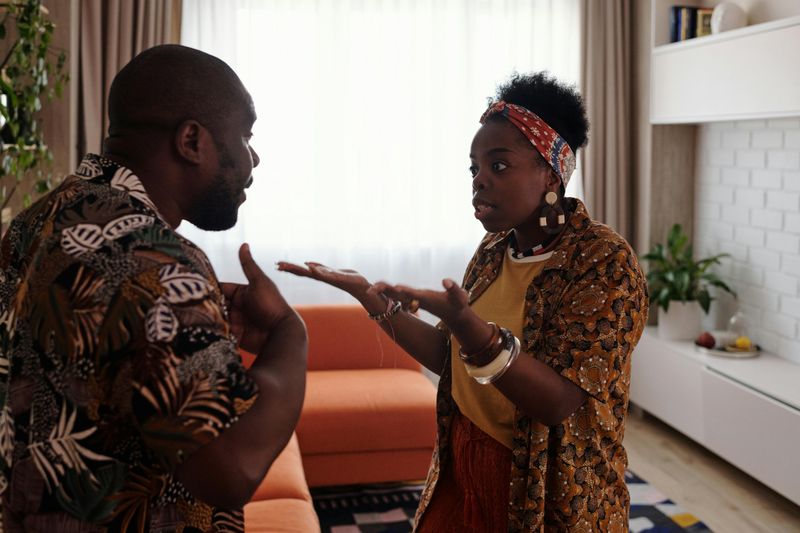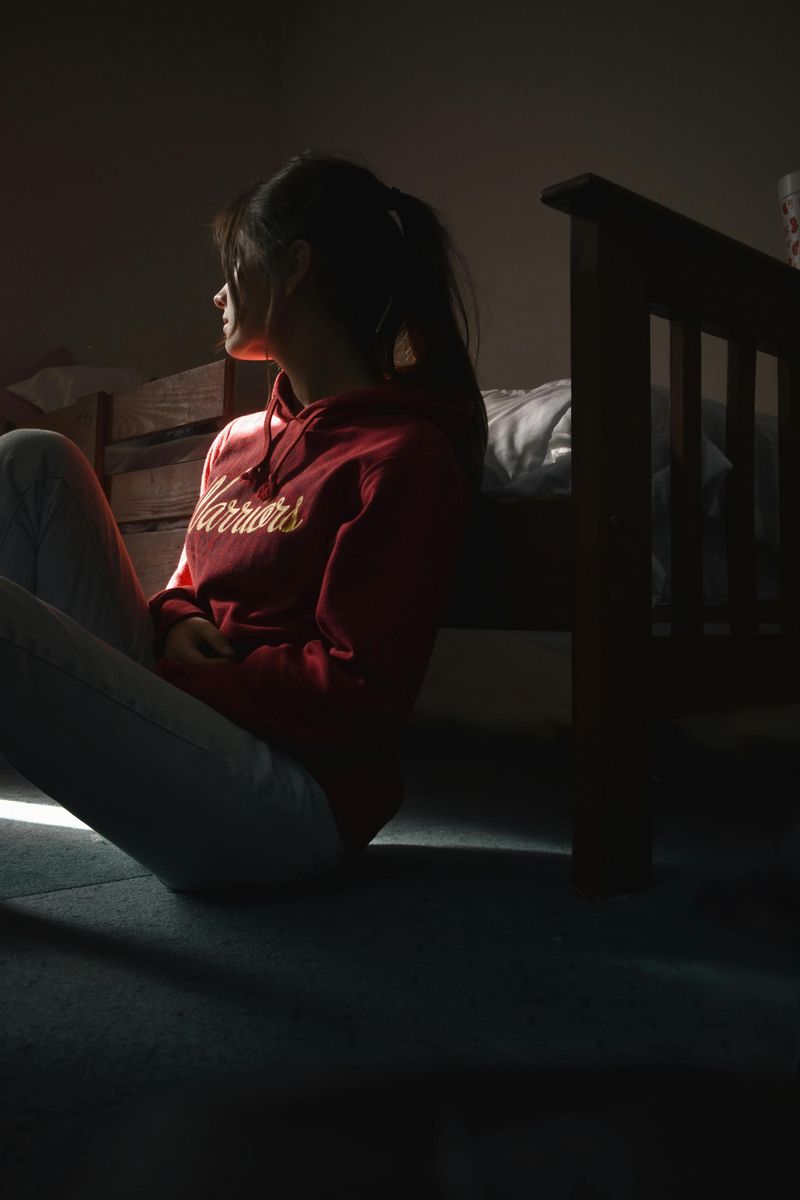18 Scary Signs Your Relationship Is Making You Someone You Don’t Want to Be

A relationship should be a source of comfort, support, and growth. However, sometimes a partnership can bring out negative aspects in us, leading to stress and unhappiness. Knowing these signs can help you assess the health of your relationship and make necessary changes.
1. You’re Constantly on Edge

Being in a relationship should make you feel secure. However, if you find yourself constantly tense, bracing for the next emotional upheaval, it’s a red flag. This continual state of anxiety can erode your mental health.
Instead of sharing joy and support, you might feel like you’re walking on eggshells, unsure of what might trigger an adverse reaction next. It’s crucial to recognize this feeling as an indication that something is amiss.
2. You Become Defensive Easily

When even simple discussions feel like attacks, you might find yourself responding defensively. This behavior could stem from feeling misunderstood or criticized frequently. Your partner’s words might inadvertently touch on sensitive areas, prompting you to put your guard up.
Over time, this defensiveness can lead to communication barriers, making it hard to have open, honest conversations.
3. They Trigger Your Insecurities

In a healthy relationship, partners uplift one another. However, if you’re increasingly questioning your worth, appearance, or abilities, it might be your partner’s influence.
Constant comparisons or subtle jabs can chip away at self-esteem, making you doubt yourself more than before. Identifying these triggers is essential for protecting your mental well-being and confidence.
4. You Find Yourself Lying

Feeling the need to hide the truth indicates a significant disconnect. If you’re altering stories or omitting details to prevent conflict, it suggests a lack of trust.
This behavior can create an emotional gap, as genuine communication becomes scarce. Lies, even small ones, can pile up, straining the relationship further.
5. You Start Mimicking Their Negativity

The people we choose to spend our time with have a profound impact on our mindset and overall outlook. Human behavior is, in many ways, contagious — attitudes, language, and emotional responses often mirror those we’re exposed to regularly.
If your partner consistently leans into negativity — whether through constant complaining, criticizing others, or expecting the worst in every situation — you may slowly begin to internalize and reflect that same mindset, often without realizing it.
6. You Pick Fights Over Small Things

Minor annoyances can sometimes lead to larger arguments. If trivial matters frequently escalate into heated disputes, it might be the relationship’s underlying tension manifesting.
Addressing the root cause, rather than the symptoms, is essential for harmony. It’s about understanding what’s truly bothering you and communicating effectively.
7. You Shut Down Emotionally

One of the worst outcomes of being in a draining relationship is learning to shut down emotionally. When you feel like your thoughts or feelings will only be dismissed, ignored, or mocked, you may stop sharing them altogether.
Instead of opening up, you build emotional walls to protect yourself. The problem is that emotional withdrawal doesn’t just affect your partner—it can bleed into every area of your life. You may struggle to connect with friends or family members because you’ve gotten used to bottling things up. Over time, you risk losing the ability to express yourself authentically, leaving you isolated and disconnected.
8. You Lose Patience Easily

Patience is a sign of emotional balance, but when your relationship drains you, it’s one of the first things to go. You may notice that you snap at your partner over small things, but it doesn’t stop there.
You might also find yourself short-tempered with friends, coworkers, or even strangers. This isn’t because you’re a naturally impatient person—it’s because the constant stress of your relationship leaves you with no emotional reserves. Living in a state of frustration makes it difficult to stay calm, even in situations that wouldn’t normally bother you.
9. You Second-Guess Yourself Constantly

A supportive partner helps you feel confident in your choices, but a toxic one can make you doubt everything.
If your partner often questions your decisions, criticizes your judgment, or acts like they always know better, you may start to second-guess yourself in every situation. Suddenly, choices that used to feel simple now seem overwhelming.
10. You Feel Jealous or Possessive

Jealousy isn’t always about mistrust—it can also stem from feeling insecure in a relationship. If your partner flirts, compares you to others, or withholds affection, you may begin to feel possessive or paranoid. This type of jealousy can change your personality in ways you don’t like. You may snoop, overreact, or accuse your partner of things without evidence.
Even worse, those feelings don’t stay contained—they can make you less trusting in friendships and cause you to project insecurity in other parts of your life.
11. You Neglect Your Own Values

In a healthy relationship, compromise is natural, but if you’re constantly bending on things that matter to you, it’s a red flag. Maybe you’ve given up hobbies, friendships, or beliefs just to keep the peace. Little by little, you start drifting away from your true self.
You may feel like you’re living someone else’s life instead of your own. This can leave you resentful, unfulfilled, and disconnected from the things that once brought you joy and purpose.
12. You Don’t Like the Person You’ve Become

One of the clearest signs your partner brings out the worst in you is when you no longer like who you are in the relationship. Maybe you notice yourself being harsher, angrier, or less patient than you ever were before.
This realization can be painful, but it’s important. Relationships should help you grow into a better version of yourself, not the opposite.
13. You’re More Critical of Others

Negativity can be contagious, affecting how you perceive others. If you notice increasing criticism toward those around you, it might be your partner’s influence.
Reclaiming a more supportive and understanding outlook can improve your interactions and personal happiness.
14. You Rely on Unhealthy Coping Mechanisms

A draining relationship often creates stress that doesn’t go away on its own. If you don’t feel supported, you may turn to unhealthy coping mechanisms to numb the pain—like overeating, overspending, drinking more than usual, or endlessly scrolling online. These habits may bring temporary relief but cause long-term harm.
The real danger is that these coping mechanisms mask the underlying issue instead of solving it. You end up stuck in a cycle where the relationship stresses you out, and your coping methods make you feel even worse.
15. You Struggle to Be Happy for Others

If your partner makes you feel inadequate, you may struggle to celebrate friends’ promotions, family milestones, or even small wins. Instead of feeling inspired, you feel resentful.
This shift can strain your social connections. People may notice your lack of enthusiasm or distance themselves from your energy. Over time, jealousy and resentment rob you of joy, leaving you bitter instead of fulfilled.
16. You Avoid Friends or Family

Maybe you don’t want to deal with your partner’s disapproval, or you’re too emotionally drained to maintain outside connections. Sometimes, you even hide how bad things really are by avoiding people who might notice. The danger here is that isolation gives your partner even more control over your emotional world. Without the support of friends and family, it’s harder to gain perspective or find encouragement.
Eventually, you lose the relationships that once brought balance and joy, leaving you more dependent on a dynamic that isn’t healthy for you.
17. You Feel Competitive With Them

Partnership should be about teamwork, but in some relationships, it starts to feel like a competition. If your partner treats your achievements as threats or constantly tries to one-up you, it can push you into the same mindset.
This competitiveness creates tension and erodes trust. Instead of celebrating milestones together, you feel pressure to “win.”
18. You’re More Easily Irritated in General

When your partner brings out the worst in you, the impact rarely stays contained. You may notice you’re more short-tempered with coworkers, less patient with friends, or less tolerant of strangers.
The irritability you feel in your relationship spills over into every other area of your life. Instead of being known as calm, kind, or understanding, you may start to feel like you’re always grumpy.

Comments
Loading…